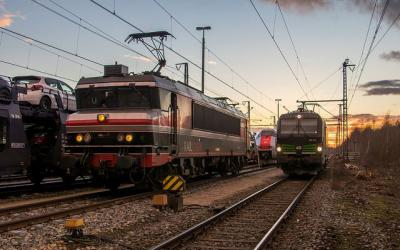Robustness, recovery and adaptability of public transport systems
The project is centred in designing robust networks and services of public transport, and on their recovery whenever there is a disruption. City transport includes buses, commuter trains and the subway. In all these cases we consider both the congestion and the dynamic nature of user demand. The transport planification and management models take into consideration aspects related to the robustness of the solution when an incident disrupts the service. This is important as incidents are part of the day-to-day management of resources in a context of uncertainty. The inclusion of these robustness aspects is the main novelty of our approach in contrast to similar research projects.
Recoverability can be achieved in two different ways: by considering alternative forms of transport to complement the disrupted one, or by having multimodal alternatives. In the first case, it is necessary to design the lines and the assignment of buses to them, considering the stops and their configurations. In both cases, the behavior of passengers must be taken into consideration.
In the case of high speed trains and flights, recovery requires integrating the reassignment of schedules with the reassignment of vehicles and crews. This has to be done in a very short time, even online, which requires the use of simulation techniques to support the tools that are in charge of logisitics management. The development of discrete events simulation models allows, on the one hand, evaluating the schedules and the routing from the point of view of vehicle traffic conflicts. On the other hand, it acts as a real-time management tool to detect the occurrence of these conflicts.
TRA2014-52530-C3-3-P, UPC subproject within Proyecto Coordinado, led by Dr. Ángel Marín Gracia (UPM) and made up of by members of UPM, UPC, UCLM

